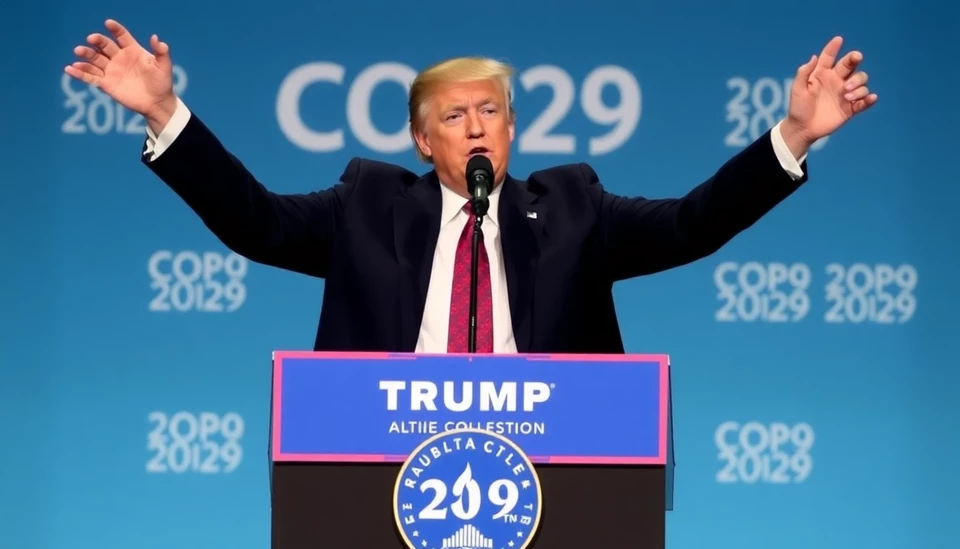
In a stunning turn of events, former President Donald Trump has emerged victorious in the 2024 elections, a development that has significant implications for global climate negotiations and funding. His return to the political arena reignites debates around climate policies and funding, particularly as the 29th annual Conference of the Parties (COP29) convenes to address the escalating climate crisis.
The COP29 summit, taking place in Dubai, has drawn heads of state, environmental advocates, and corporate leaders from around the globe, all aiming to forge a unified response to climate change. However, with Trump's election, the dynamics of the conference have shifted dramatically. Known for his skepticism towards climate science and his administration’s withdrawal from the Paris Agreement, Trump's leadership poses an existential threat to international climate initiatives that rely heavily on U.S. funding and leadership.
During his previous term, Trump made significant cuts to climate programs, leaving the global community to grapple with the repercussions of diminished American funding for climate initiatives. As delegates gather in Dubai, many are concerned that Trump’s win means a return to policies that could halt progress made since the Paris Agreement and jeopardize the trust built among nations committed to combating climate change.
The uncertainty surrounding U.S. climate funding has placed additional pressure on vulnerable countries that boast limited resources to tackle climate change impacts. Developing nations, which are disproportionately affected by climate-related disasters, have been vocal about their need for financial support, emphasizing that any shift in U.S. policy could jeopardize ongoing and future climate adaptation projects.
Environmental activists and leaders gathered at COP29 express deep concern over the potential ramifications of a Trump presidency on international climate accords. Notably, figures like United Nations Secretary-General António Guterres have warned that reversing climate commitments could undermine years of negotiations and hard-won agreements aimed at reducing global carbon emissions.
Amid the rising tension, some observers are calling for an urgent reevaluation of strategies that empower nations and organizations to act independently of U.S. influence in climate finance. This has opened the door for alternative funding mechanisms, such as public-private partnerships, which could lessen the reliance on American support and provide pathways for sustainable solutions in climate adaptation.
As COP29 continues, delegates will have to navigate this complex political landscape strategically. Discussions are expected to revolve around creating robust frameworks that prioritize accountability and transparency, ensuring that even in the face of potential U.S. withdrawal from global climate leadership, serious commitments to the climate agenda can be established and maintained.
The outcomes of this conference could set the tone for international collaboration—or conflict—in addressing climate change for years to come. As nations vie to stake their positions, the global community watches closely, aware that the stakes could not be higher in this defining moment for climate action.
As COP29 progresses, the impact of Trump's unexpected victory will resonate throughout the negotiations, prompting many to reconsider the pathways toward achieving sustainable climate solutions amid a shifting political landscape.
#Trump #COP29 #ClimateChange #ClimateCrisis #InternationalRelations #ClimateAction #ParisAgreement #EnvironmentalPolicy #USelections2024 #SustainableFuture #GlobalWarming
Author: Peter Collins




